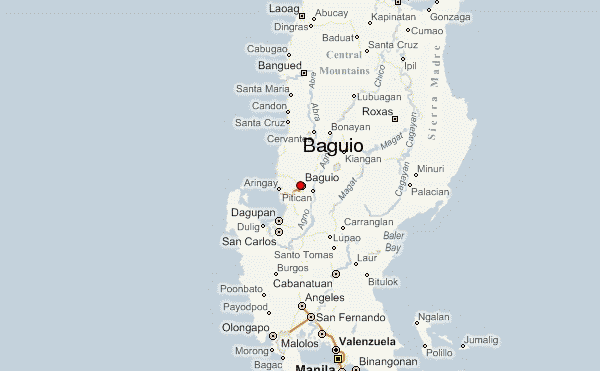
-
МјРЇСІИёСЖШИМі
-
 И№ОЫ КИОЫ Йъ ЗЛЦЎЧЯБт~ ИЎСЖЦЎ ПЙОрБюСі
И№ОЫ КИОЫ Йъ ЗЛЦЎЧЯБт~ ИЎСЖЦЎ ПЙОрБюСі 89,602
89,602 -
 [ЧЪИЎЧЩ ММКЮ] ФЋИ№ХзНК ПЉЧр 100Йш СёБтБт
[ЧЪИЎЧЩ ММКЮ] ФЋИ№ХзНК ПЉЧр 100Йш СёБтБт 49,752
49,752 -
 ИЖДвЖѓ НУГЛ - ИЎРп АјПјСЄКИ. (ЛчСј 16Рх ЦїЧд)
ИЖДвЖѓ НУГЛ - ИЎРп АјПјСЄКИ. (ЛчСј 16Рх ЦїЧд) 30,843
30,843 -
 ММКЮРЧ СіПЊСЄКИ15,559
ММКЮРЧ СіПЊСЄКИ15,559 -
 ИЖДвЖѓ БйБГ - ЕћАЁРЬЕћРЬ ПЉЧр СЄКИ14,395
ИЖДвЖѓ БйБГ - ЕћАЁРЬЕћРЬ ПЉЧр СЄКИ14,395 -
 [ЧЪИЎЧЩ ММКЮ/ИЗХК] ШЃХк МїЙк ПфБн Йз СЄКИ13,351
[ЧЪИЎЧЩ ММКЮ/ИЗХК] ШЃХк МїЙк ПфБн Йз СЄКИ13,351 -
 КИЖѓФЋРЬРЧ И№Еч И№НРРЛ КММі РжДТ ЛчСјУИ.13,165
КИЖѓФЋРЬРЧ И№Еч И№НРРЛ КММі РжДТ ЛчСјУИ.13,165 -
 ИЖДвЖѓ БйБГ - ЦХЛѓЧб ЦјЦї ПЉЧрСЄКИ12,865
ИЖДвЖѓ БйБГ - ЦХЛѓЧб ЦјЦї ПЉЧрСЄКИ12,865 -
 [ММКЮ-ЙшМБТјРх] МБЙкШИЛч РќШЙјШЃПЁПф~12,489
[ММКЮ-ЙшМБТјРх] МБЙкШИЛч РќШЙјШЃПЁПф~12,489 -
 ИЖДвЖѓ СіПЊ(ПЁИЃЙЬХИ -ИЛЖѓХз)РЧ СіЕЕ/ЧбБЙ РННФСЁ/МюЧЮИє12,144
ИЖДвЖѓ СіПЊ(ПЁИЃЙЬХИ -ИЛЖѓХз)РЧ СіЕЕ/ЧбБЙ РННФСЁ/МюЧЮИє12,144
BAGUIO, PHILIPPINES
The City of Baguio (Ilokano: Ciudad ti Baguio; Filipino: Lungsod ng Baguio; Pangasinan: Ciudad na Baguio) is a highly urbanized city located in the province of Benguet in northern Luzon island of the Philippines. The city has become the center of business and commerce as well as the center of education in the entire Northern Luzon thereby becoming the seat of government of the Cordillera Administrative Region (C.A.R.). According to the 2010 census, Baguio City has a population of 318,676.
Baguio City was established by the Americans in 1900 at the site of an Ibaloi village known as Kafagway. The name of the city is derived from the word bagiw in Ibaloi, the indigenous language of the Benguet Region, meaning 'moss'. The city is at an altitude of approximately 1450 meters (4760 feet) in the Luzon tropical pine forests ecoregion conducive to the growth of mossy plants and orchids.
Because of its altitude, Baguio City was designated by the Philippine Commission as the Summer Capital of the Philippines on June 1, 1903. It was incorporated as a chartered city by the Philippine Assembly on September 1, 1909, as authored by former Philippines Supreme Court Justice George A. Malcolm. The City of Baguio celebrated its Centennial on September 1, 2009.
- ЁЄ
- ЁЄ
- ЁЄ
- ЁЄ
- ЁЄryWvMVxeet
- ЁЄryWvMVxeet
- ЁЄryWvMVxeet\'\"\\(
- ЁЄryWvMVxeetщ\'\"\\(
- ЁЄryWvMVxeet
- ЁЄryWvMVxeet
- ЁЄryWvMVxeet
- ЁЄryWvMVxeet
- ЁЄryWvMVxeet
- ЁЄryWvMVxeet
- ЁЄryWvMVxeet















 ЧЪРкДхФФ ОпАЃЛѓДу ПРЧТ
ЧЪРкДхФФ ОпАЃЛѓДу ПРЧТ 13ГтПЌМг МвКёРкИИСЗ 1РЇ
13ГтПЌМг МвКёРкИИСЗ 1РЇ

 ГЛАд ИТДТ ОюЧаПј УЃБт
ГЛАд ИТДТ ОюЧаПј УЃБт
 ИЎОѓ ЧаБГ ЙцЙЎБт
ИЎОѓ ЧаБГ ЙцЙЎБт
 СжИЛПЁ ГЛАЁ ОЕ КёПыРК?
СжИЛПЁ ГЛАЁ ОЕ КёПыРК? УжАэАЁМККё РЬКЅЦЎ СёБтБт
УжАэАЁМККё РЬКЅЦЎ СёБтБт
 ЧіСіПЁМЕЕ ЧЪРкДхФФ!
ЧіСіПЁМЕЕ ЧЪРкДхФФ! ЧіСіПЁМ АЁДЩЧб
ЧіСіПЁМ АЁДЩЧб









 ЧЪРк ЦЏБо Ч§ХУ! ФСНУОюСі МКёНК
ЧЪРк ЦЏБо Ч§ХУ! ФСНУОюСі МКёНК



































